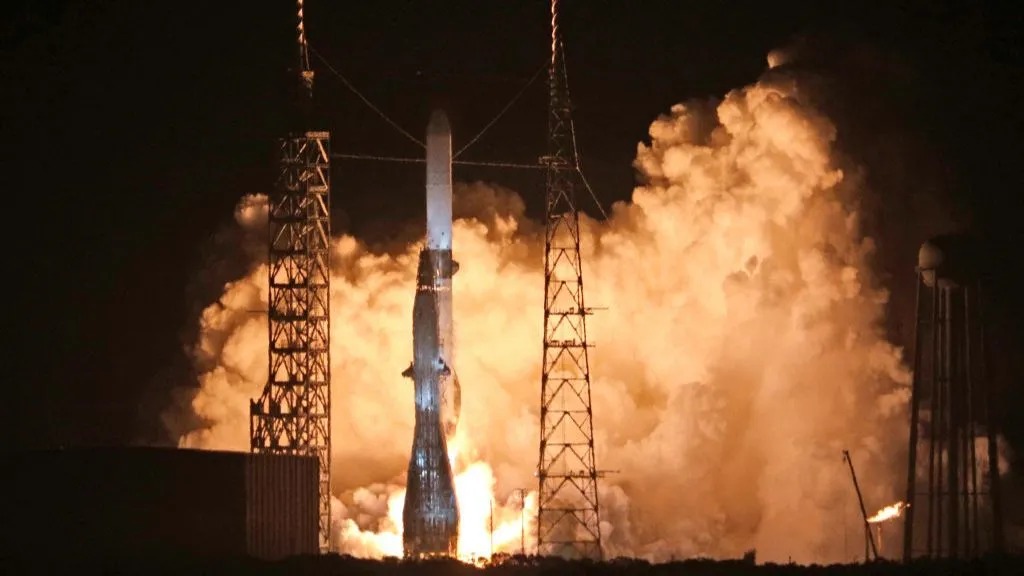
Rocket Launch Challenges Elon Musk’s Space Dominance
Amazon founder Jeff Bezos’s Blue Origin has taken a giant leap in the commercial space race, launching its New Glenn rocket into orbit for the first time. This ambitious move firmly positions Bezos’s company as a competitor to Elon Musk’s SpaceX, raising the stakes in a growing battle for space innovation.
The New Glenn rocket, launched from Cape Canaveral Space Force Station in Florida, represents a critical milestone for Blue Origin. Although Bezos’s company has lagged behind SpaceX’s meteoric rise, this launch signals a bold effort to rival Musk’s dominance in space exploration.
A Race to Rule the Stars
Both Musk and Bezos have ambitious plans for space. Their goals include:
- Launching thousands of satellites to expand global broadband access.
- Building private space stations for scientific and commercial use.
- Providing transportation to the Moon for regular missions.
While Musk’s Starlink already dominates the satellite broadband industry, Bezos’s Project Kuiper is set to compete directly by deploying thousands of low-Earth orbit satellites.
The New Glenn rocket, named after astronaut John Glenn, boasts more power and satellite-carrying capacity than SpaceX’s Falcon 9. This gives Blue Origin a chance to carve a space for itself in the market.
Challenges and Setbacks
The New Glenn launch, while groundbreaking, wasn’t without its setbacks:
- Blue Origin failed to recover the rocket’s booster, which was intended to be reusable.
- This is in contrast to SpaceX, whose reusable rockets have revolutionized the space industry and significantly cut costs.
Dave Limp, CEO of Blue Origin, acknowledged the missed opportunity but remained optimistic:
“We’ll learn a lot from today and try again at our next launch this spring.”
Elon Musk, however, extended a rare congratulatory note to Bezos, writing on X:
“Congratulations on reaching orbit on the first attempt!”
Blue Origin vs. SpaceX: The Competition Heats Up
Jeff Bezos founded Blue Origin 25 years ago with the vision of having “millions of people working and living in space.” However, Blue Origin has so far struggled to match SpaceX’s pace and success:
- SpaceX launched 134 rockets in 2023 alone.
- Its Starship rocket, currently in its seventh test flight, remains the most powerful operational rocket.
Despite this, experts suggest that New Glenn could create real competition:
“What you are going to see are these two companies challenge each other to make even greater strides,” said Dr. Simeon Barber from the Open University in the UK.
How Private Space Ventures Are Reshaping the Industry
Historically, governments such as NASA have spent billions on space missions. However, there’s a growing shift towards privatization, with contracts increasingly awarded to private companies like SpaceX and Blue Origin.
SpaceX’s dominance is already well-established, having secured billions of dollars in contracts for NASA and other agencies. Additionally, Musk’s close relationship with President-elect Donald Trump could further solidify the company’s position.
On the other hand, Blue Origin’s New Glenn rocket introduces competition, potentially driving down costs and accelerating innovation in the sector.
Looking Ahead: The Future of Space Exploration
While Blue Origin still has a long way to go to match SpaceX’s scale and speed, the successful launch of the New Glenn rocket marks a significant turning point. The commercial space race is intensifying, promising breakthroughs that could redefine humanity’s relationship with the cosmos.
With both Musk and Bezos competing for supremacy, the sky is no longer the limit.
External Link: BBC
Internal Link: Kenkou Land



